Contents
Introduction
David Buss is a highly influential American evolutionary psychologist renowned for his extensive research on human mating strategies, jealousy, infidelity, and cross-cultural studies of mate preferences. As a leading figure in evolutionary psychology, Buss has significantly advanced our understanding of the biological and evolutionary underpinnings of human behavior, particularly in the context of relationships and sexuality. His groundbreaking work has not only shaped academic discourse but also influenced public perceptions of human mating dynamics. Buss’s prolific publications, including The Evolution of Desire and The Handbook of Evolutionary Psychology, have made complex scientific concepts accessible to a broad audience, cementing his status as one of the foremost psychologists in his field.
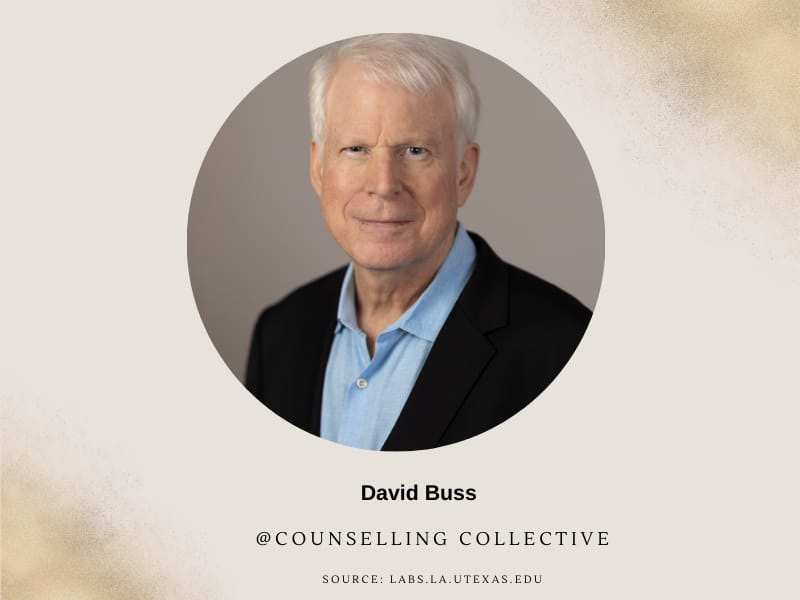
This article explores Buss’s life, major theories, and the profound impact of his work on modern psychology, particularly his contributions to understanding human mating behavior and evolutionary influences on relationships.
Early Life and Education
David M. Buss was born on May 24, 1953, in New York City, USA. Growing up in a culturally diverse environment, Buss developed an early interest in understanding human behavior and the complexities of interpersonal relationships. His academic pursuits were driven by a desire to explore the biological and evolutionary factors that shape human interactions, particularly in the realm of mating and attraction. Buss’s dedication to uncovering the roots of human behavior led him to become a pivotal figure in evolutionary psychology, with his research providing deep insights into the motivations and strategies that underpin human relationships.
Image Source: College of Liberal Arts – University of Texas at Austin

Educational Journey
| Aspect | Details |
|---|---|
| Undergraduate Education | Buss earned his Bachelor of Arts degree in Psychology from Swarthmore College in 1975. During his undergraduate studies, he developed a strong interest in behavioral science and evolutionary theory, laying the foundation for his future research in evolutionary psychology. |
| Graduate Studies | He pursued his Ph.D. in Clinical Psychology at Harvard University, completing his dissertation on personality traits and mating strategies in 1980. Under the mentorship of prominent psychologists, Buss honed his expertise in evolutionary theory and its application to human behavior. |
| Postdoctoral Training | After earning his doctorate, Buss conducted postdoctoral research at the University of Michigan, where he focused on cross-cultural studies of mate preferences. This period was crucial in shaping his interdisciplinary approach, integrating insights from anthropology, biology, and psychology into his research on human mating strategies. |
| Academic Positions | Buss has held prestigious academic positions, including a professorship at the University of Texas at Austin, where he established the Center for Evolutionary Psychology. His role as a professor has allowed him to mentor numerous students and foster a collaborative research environment focused on evolutionary approaches to psychology. |
Influences and Early Career
| Aspect | Details |
|---|---|
| Charles Darwin | The foundational work of Charles Darwin on natural selection and evolution profoundly influenced Buss’s approach to psychology. Darwin’s theories provided the evolutionary framework that Buss applied to understanding human mating behaviors and strategies. |
| Robert Trivers | Buss was significantly influenced by Robert Trivers’s theories on reciprocal altruism and parental investment, which offered key insights into the evolutionary pressures shaping human mating strategies. Trivers’s work on social evolution provided a critical basis for Buss’s own research on mating dynamics. |
| Sociobiology | The interdisciplinary field of sociobiology, which examines the biological basis of social behavior, played a crucial role in shaping Buss’s research interests. Sociobiological theories emphasized the role of genetics and evolution in influencing human behavior, aligning with Buss’s focus on evolutionary psychology. |
| Peter Gray | Collaborating with Peter Gray, a psychologist known for his work on play and human development, Buss explored the role of evolutionary factors in shaping human social interactions and mating preferences. This collaboration enriched Buss’s understanding of the interplay between biology and environment in human behavior. |
| Cross-Cultural Research | Early in his career, Buss engaged in cross-cultural studies that examined mate preferences across different societies. This research highlighted the universal and culturally specific aspects of human mating strategies, reinforcing the importance of evolutionary perspectives in psychology. |
Major Theories and Work
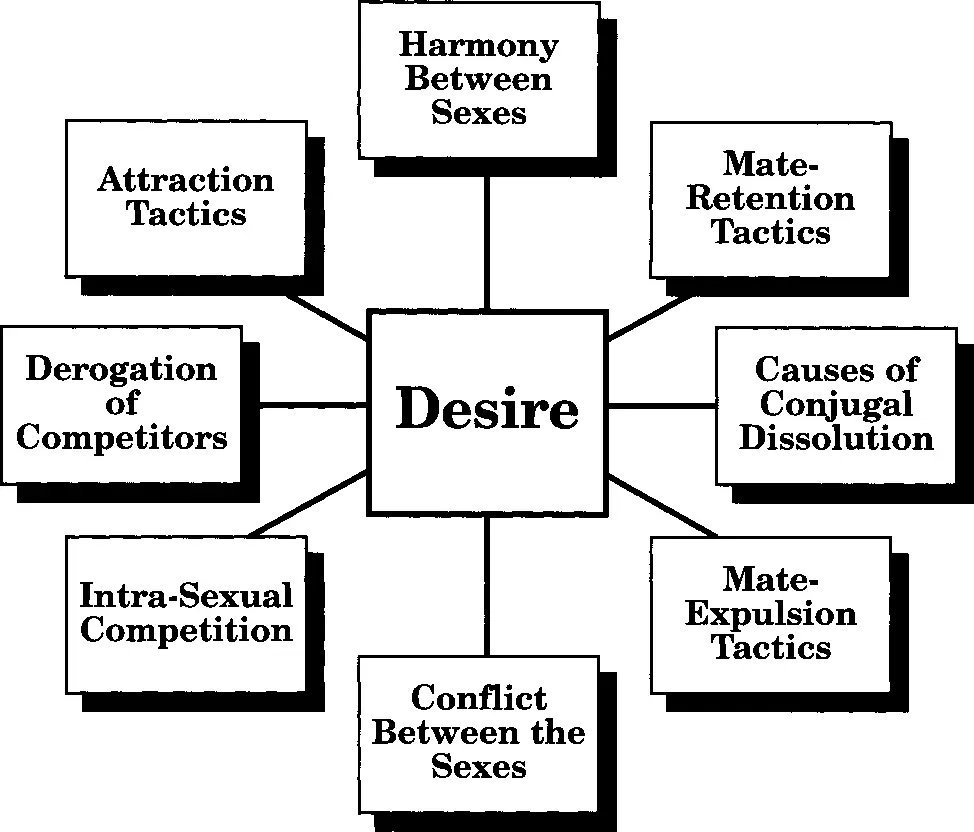
Evolutionary Psychology and Mating Strategies
David Buss is a seminal figure in evolutionary psychology, with his work primarily focusing on understanding the evolutionary roots of human mating strategies. Key elements of his theories include:
- Sexual Strategies Theory: Buss developed Sexual Strategies Theory, which posits that humans have evolved a variety of mating strategies to maximize reproductive success. These strategies are influenced by factors such as environmental conditions, individual differences, and societal norms.
- Mate Preferences: Buss’s extensive cross-cultural research has identified universal patterns in mate preferences, such as the importance of physical attractiveness, resources, and kindness. His studies have revealed that while some preferences are culturally specific, many are rooted in evolutionary imperatives that transcend cultural boundaries.
- Jealousy and Infidelity: Buss has explored the evolutionary basis of jealousy and infidelity, suggesting that these emotions and behaviors have evolved as mechanisms to protect pair bonds and ensure paternity certainty.
Image Source: Semantic Scholar
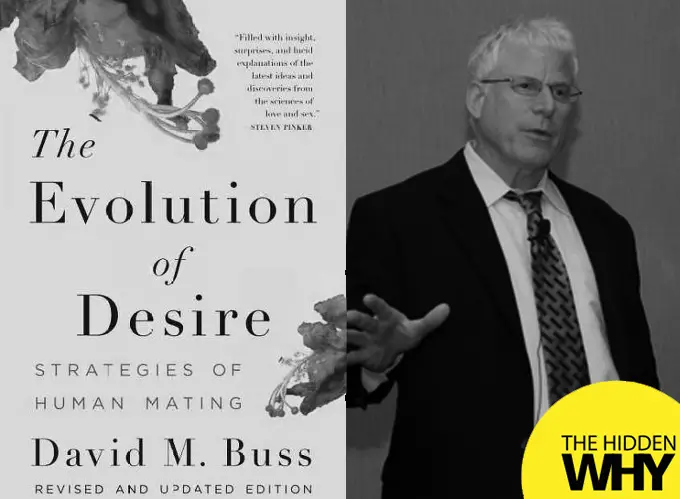
The Evolution of Desire
In his influential book The Evolution of Desire: Strategies of Human Mating (1994), Buss synthesizes his research on human mating strategies, offering a comprehensive overview of how evolutionary forces shape romantic and sexual behavior. Key themes include:
- Cultural and Biological Interactions: Buss emphasizes the interaction between cultural norms and biological imperatives in shaping mating behavior. He argues that while cultural factors influence mating preferences, they do so within the constraints imposed by evolutionary biology.
- Diversity of Mating Strategies: The book highlights the diversity of mating strategies employed by humans, including mate guarding, mate poaching, and strategic promiscuity.
- Gender Differences: Buss discusses the evolutionary reasons behind gender differences in mate preferences and mating strategies, such as the higher emphasis females place on resource acquisition and males on physical attractiveness due to differential reproductive investments.
Image Source: Leigh Martinuzzi
Famous Books and Publications
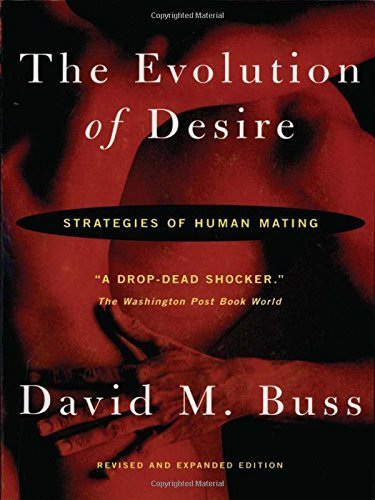
The Evolution of Desire
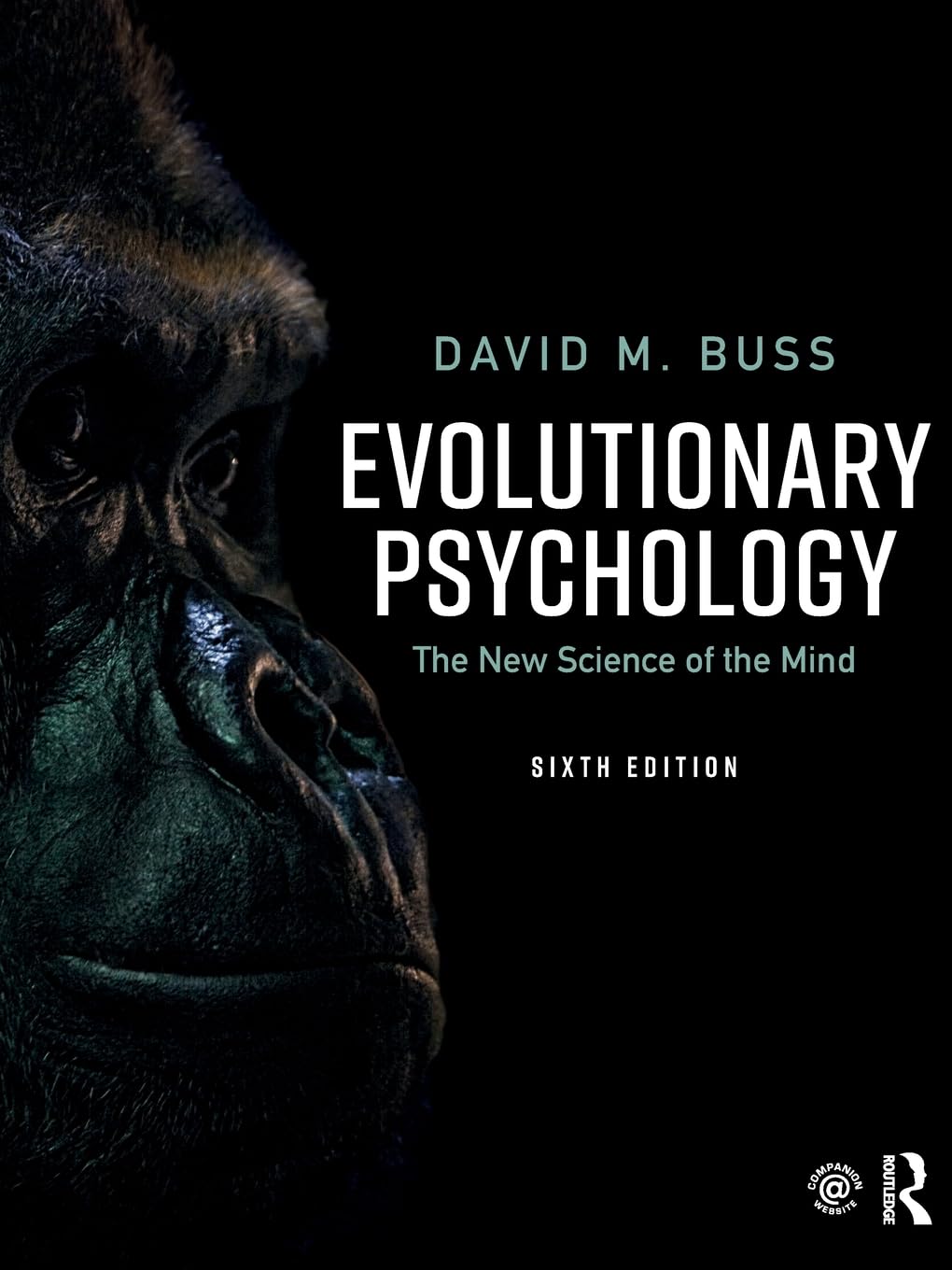
Evolutionary Psychology: The New Science of the Mind
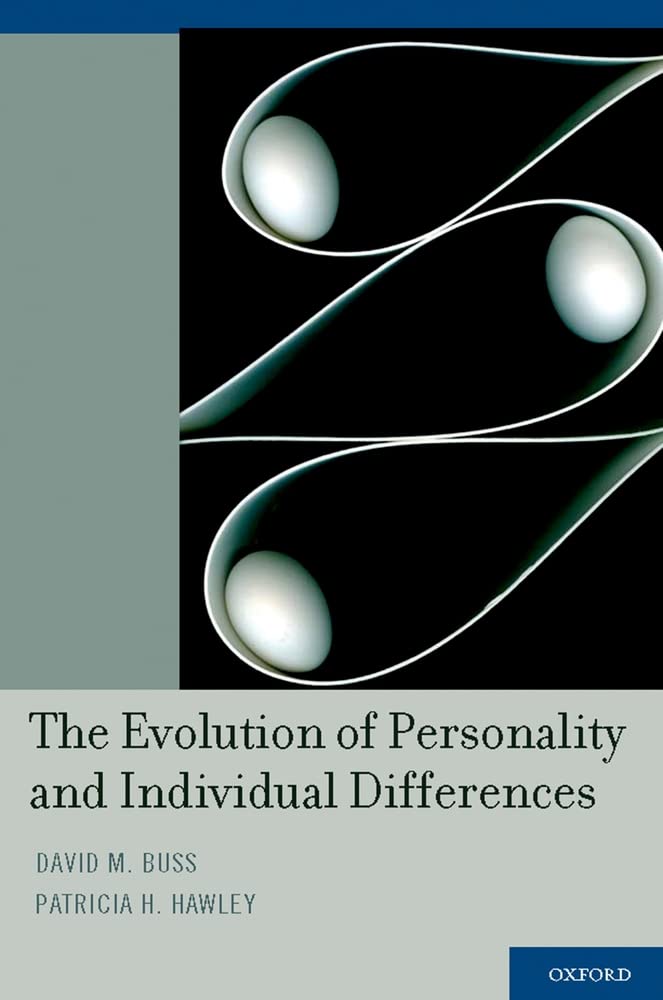
The Evolution of Personality and Individual Differences
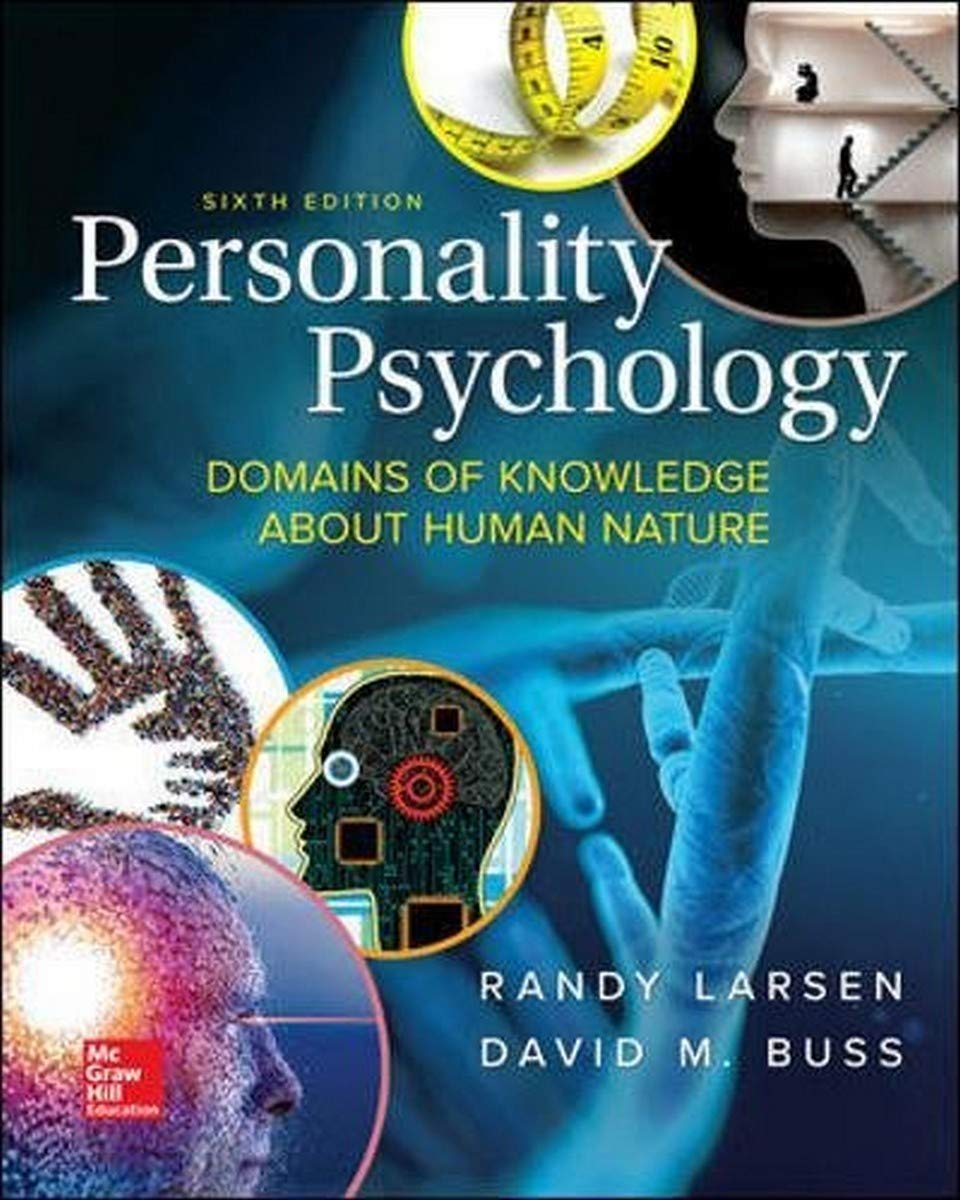
Personality Psychology: Domains of Knowledge About Human Nature
Influence on Contemporary and Future Psychological Research
David Buss’s theories continue to shape contemporary psychological research, inspiring new studies and applications across various domains:
- Advancements in Evolutionary Psychology: Buss’s work has laid the groundwork for ongoing research in evolutionary psychology, encouraging studies that explore the biological and evolutionary bases of a wide range of human behaviors beyond mating, including parenting, cooperation, and competition.
- Interdisciplinary Collaborations: His interdisciplinary approach has fostered collaborations between psychologists, anthropologists, biologists, and sociologists, promoting a more integrated understanding of human behavior that incorporates multiple scientific perspectives.
- Clinical Applications: Buss’s insights into mating strategies and relationship dynamics have influenced clinical psychology practices, particularly in the areas of relationship counseling and therapy. His research informs interventions aimed at improving relationship satisfaction and addressing issues such as infidelity and jealousy.
- Technological and Social Media Research: Emerging research on how technology and social media impact human mating behavior builds on David Buss’s foundational theories. Studies now investigate how online dating platforms, social networks, and digital communication change the dynamics of mate selection, attraction, and long-term relationship formation.
- Cultural Evolution Studies: Buss’s cross-cultural research continues to influence studies on the cultural evolution of mating strategies. Scholars now examine how globalization, cultural exchange, and societal shifts—such as urbanization and changing gender norms—reshape traditional mating practices and preferences.
Psychologists Influenced by David Buss
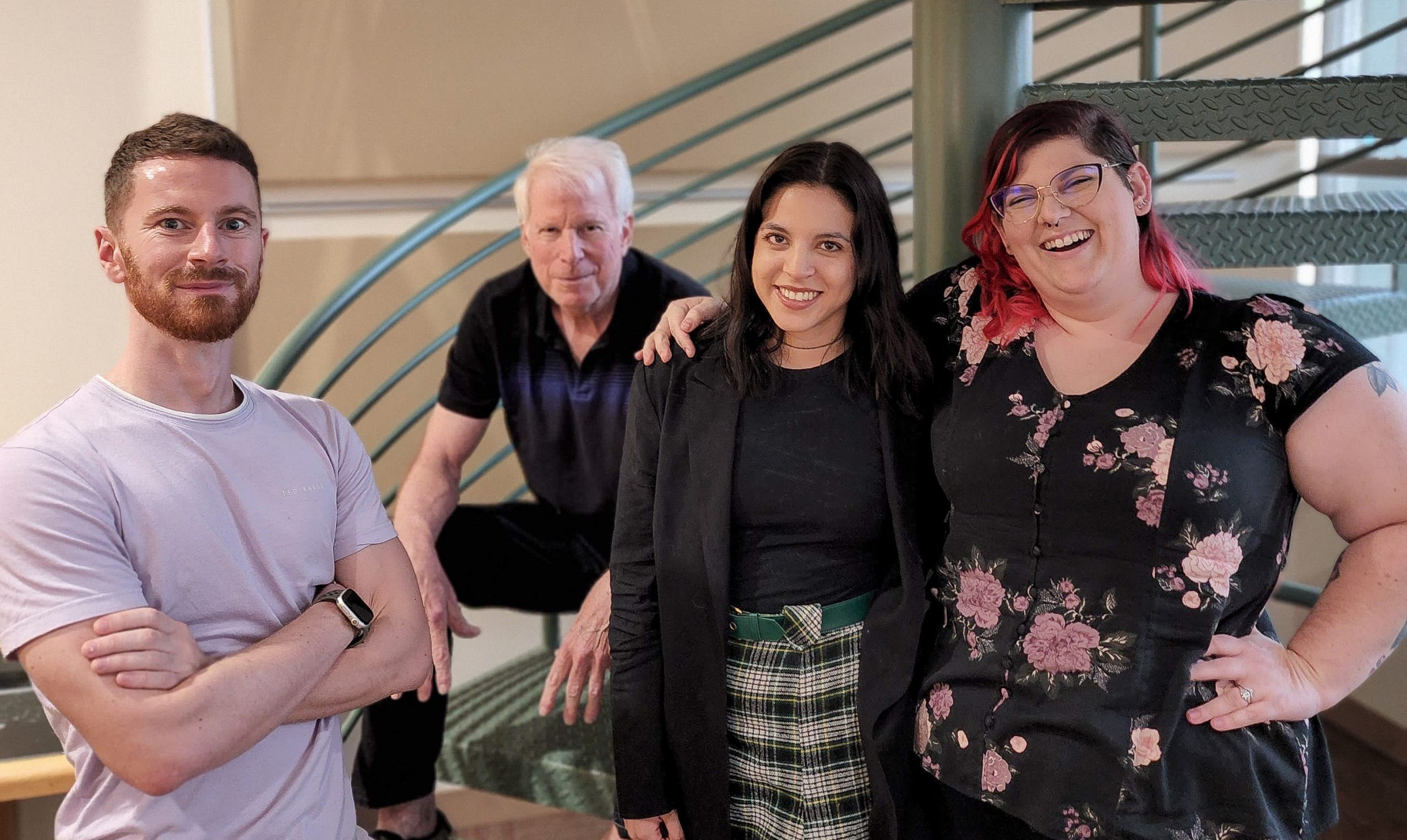
- David P. Schmitt: A prominent evolutionary psychologist, Schmitt has collaborated with Buss on numerous studies exploring cross-cultural mate preferences and human sexuality. His work on the global patterns of mate selection aligns closely with Buss’s theories on evolutionary influences.
- Martie Haselton: As a colleague in evolutionary psychology, Haselton’s research on the interplay between hormones and mating behavior has been influenced by Buss’s theories on evolutionary mating strategies and sexual selection.
- Todd K. Shackelford: Shackelford’s work on evolutionary psychology and human sexuality has been shaped by Buss’s extensive research on mating strategies and mate preferences, contributing to a deeper understanding of the biological and psychological factors influencing human relationships.
- Robin Dunbar: An anthropologist and evolutionary psychologist, Dunbar has drawn on Buss’s research to explore the evolutionary origins of human social networks and mating behaviors, integrating Buss’s insights into broader theories of social evolution.
Impact on Psychology
- Influence on Modern Thought: David Buss’s integration of evolutionary theory into psychology has significantly reshaped the understanding of human behavior, relationships, and mating strategies. His work bridges the gap between biological evolution and psychological processes, emphasizing the role of natural selection in shaping human traits and behaviors. Buss’s research has inspired interdisciplinary approaches that combine evolutionary biology, psychology, and anthropology to study human interaction.
- Legacy and Recognition: Buss has received numerous accolades, including the Distinguished Scientific Contributions Award from the APA for his groundbreaking work in evolutionary psychology. He also earned a Lifetime Achievement Award from the ISSBD, highlighting his enduring impact on behavioral development. Honorary Doctorates from several institutions further recognize his contributions to understanding human nature. His theories are now foundational in academic curricula, research, and applied fields like relationship counseling and organizational behavior, solidifying his legacy in modern evolutionary psychology.
Conclusion
David Buss’s pioneering work in evolutionary psychology has had a profound and lasting impact on the field of psychology, particularly in understanding human mating behavior and the evolutionary influences on relationships. By elucidating the biological and evolutionary underpinnings of mate preferences, reproductive strategies, and relationship dynamics, Buss has provided invaluable insights into the complexities of human behavior. His extensive research, engaging writings, and interdisciplinary approach have not only advanced academic knowledge but also informed practical applications in education, therapy, and social policy. Buss’s enduring legacy continues to shape the way psychologists, researchers, and the general public understand the intricate interplay between biology, evolution, and human relationships.
Bibliography
- Buss, D. M. (1994). The Evolution of Desire: Strategies of Human Mating. Basic Books.
- Buss, D. M., & Schmitt, D. P. (1993). Sexual Strategies Theory: An Evolutionary Perspective on Human Mating. Psychological Review, 100(2), 204–232.
- Buss, D. M. (2008). The Evolution of Desire: Strategies of Human Mating. Basic Books.
- Buss, D. M., & Barnes, M. (1986). Preferences in human mate selection. Journal of Personality and Social Psychology, 50(3), 559–570.
- Buss, D. M., & Schmitt, D. P. (1993). Sexual Strategies Theory: An Evolutionary Perspective on Human Mating. Psychological Review, 100(2), 204–232.
- Buss, D. M. (2016). The Handbook of Evolutionary Psychology. John Wiley & Sons.
- Buss, D. M., & Haselton, M. G. (2006). Evolutionary Psychology: The New Science of the Mind. Psychology Press.
- Buss, D. M., & Barnes, M. (1986). Preferences in human mate selection. Journal of Personality and Social Psychology, 50(3), 559–570.
- Buss, D. M., & Staples, J. (2005). The Handbook of Evolutionary Psychology. John Wiley & Sons.
- Buss, D. M., & Schmitt, D. P. (2011). The Handbook of Evolutionary Psychology. John Wiley & Sons.
